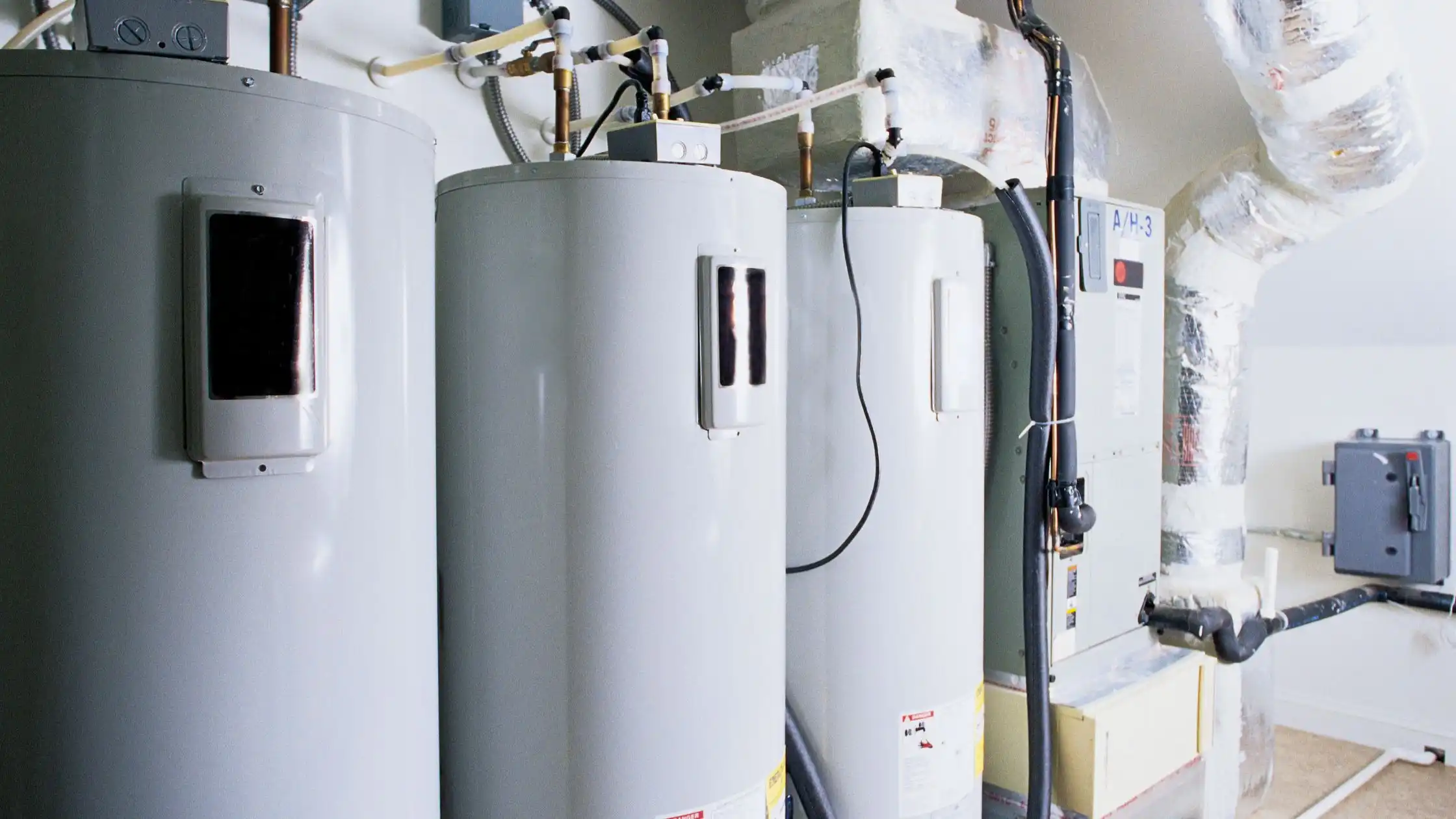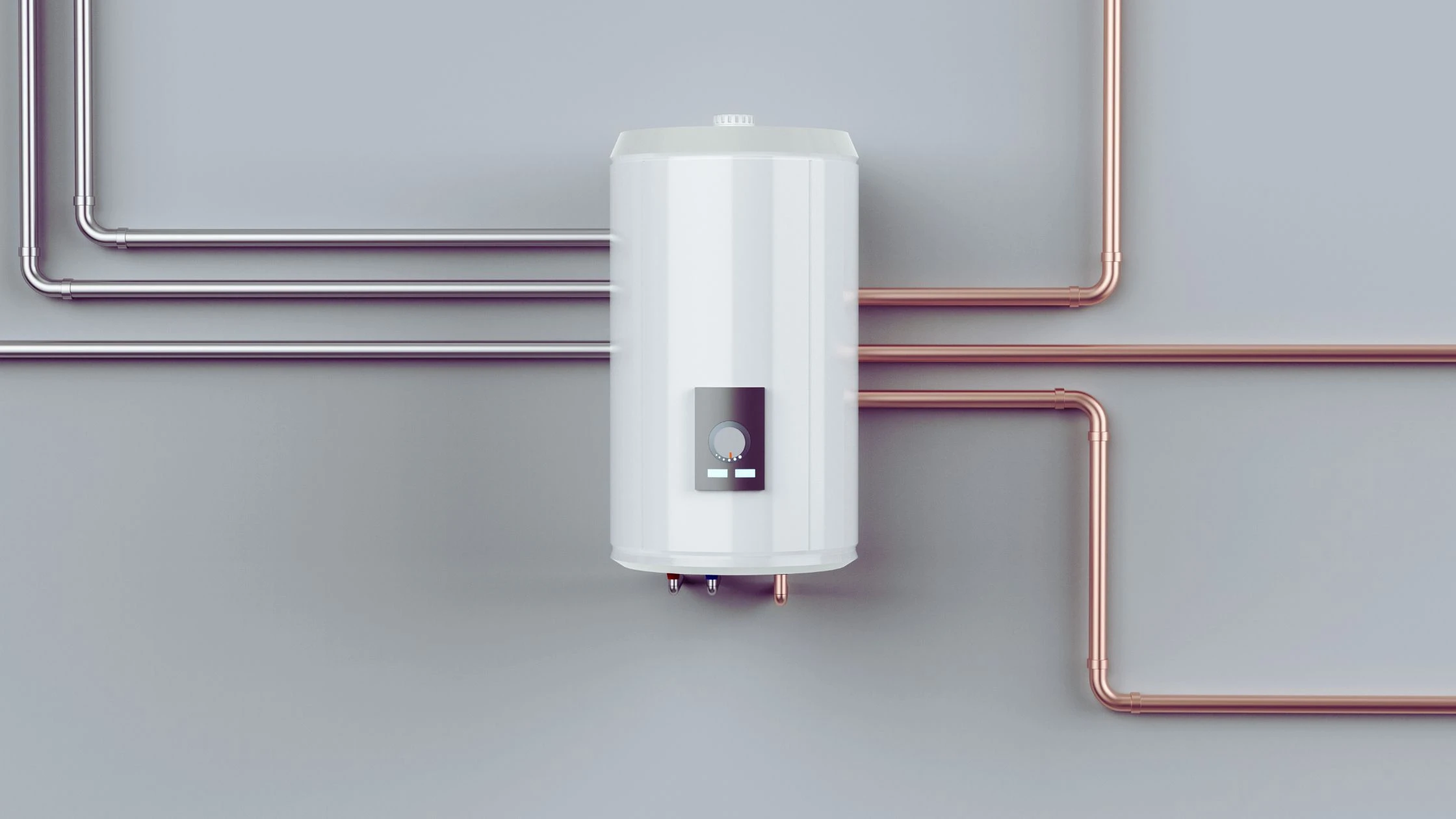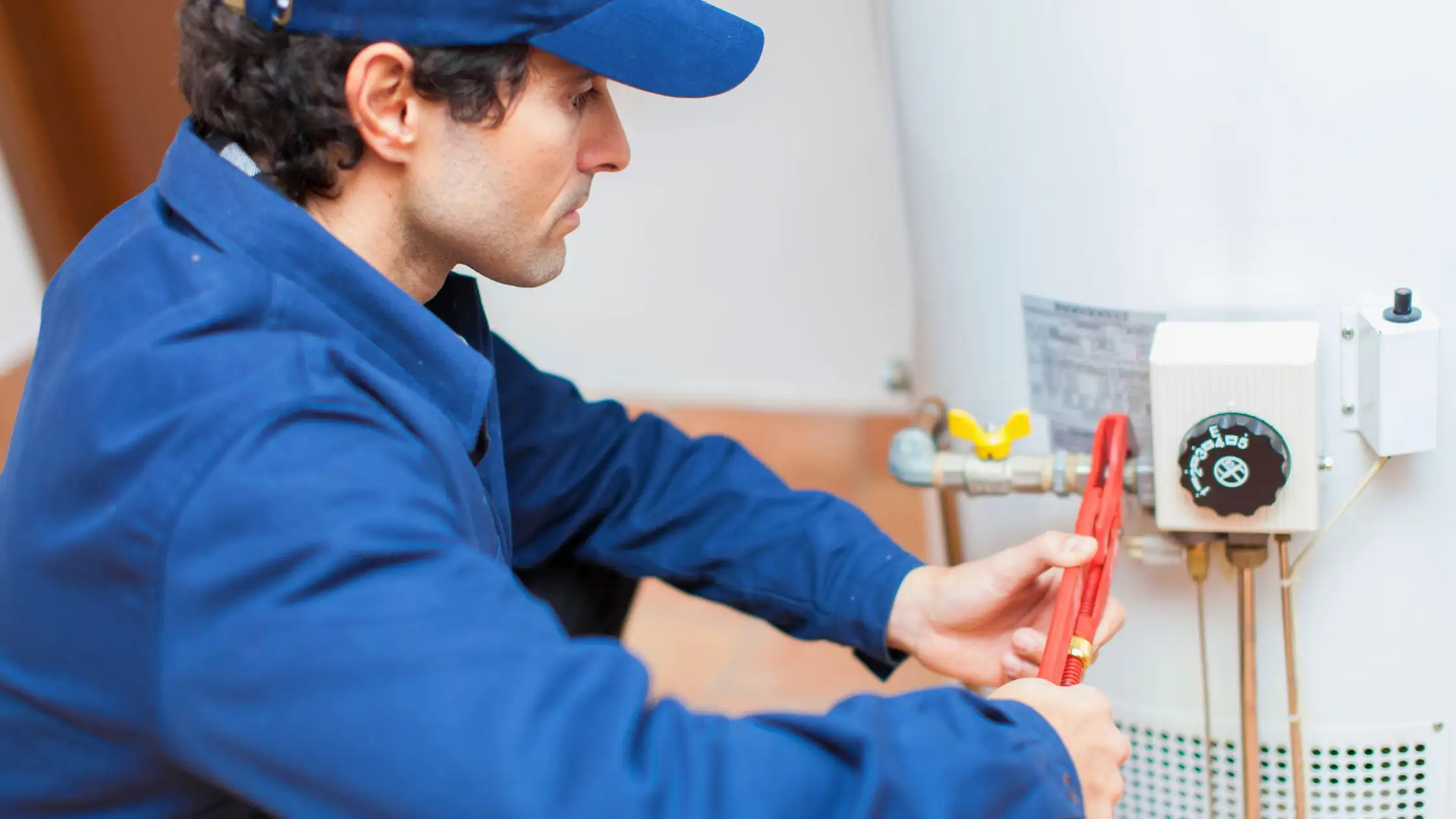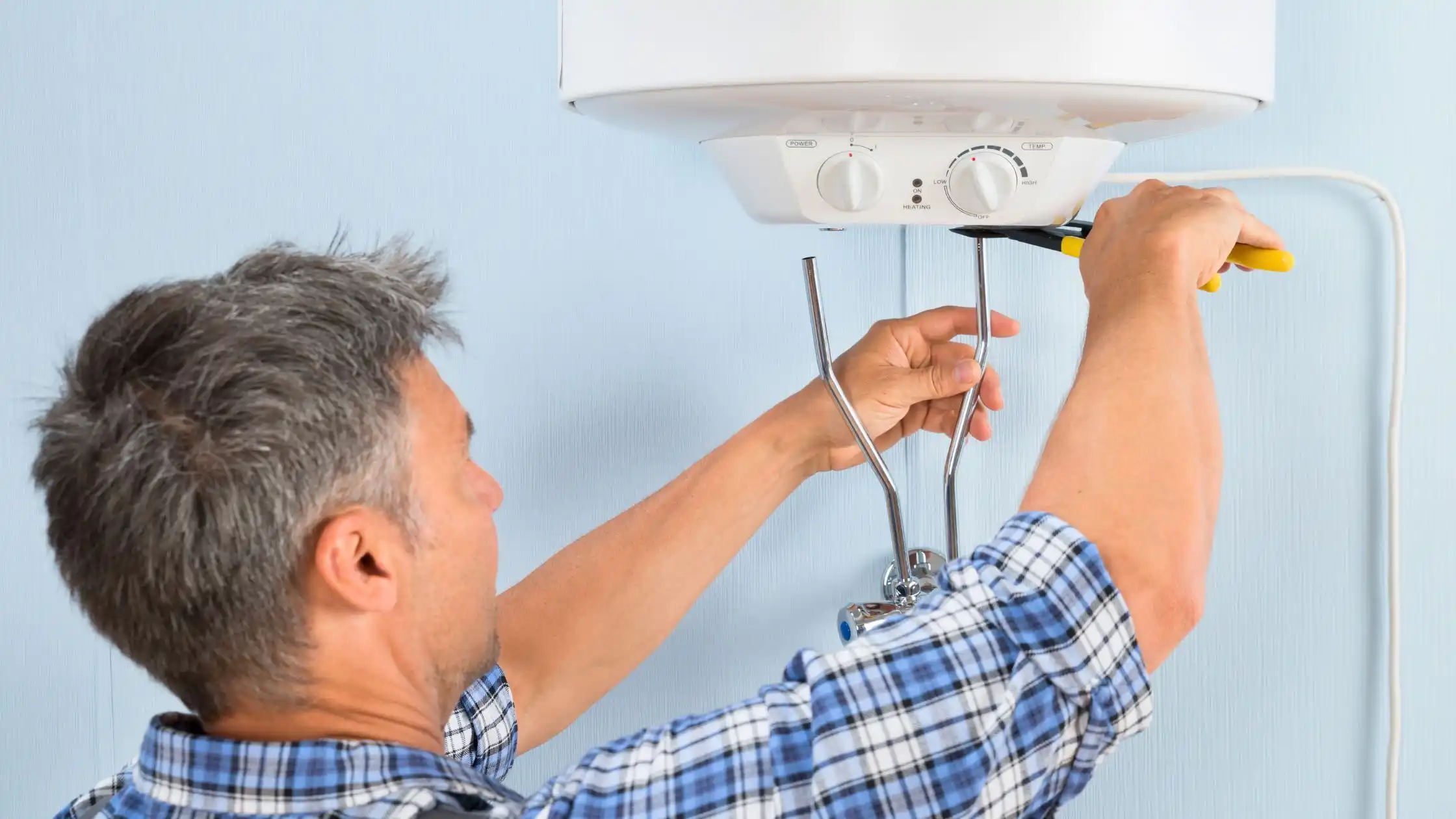Are you experiencing issues with your tankless water heater not heating water properly? This frustrating problem can disrupt your daily routine and leave you with uncomfortable cold showers. In this comprehensive guide, we’ll explore the common causes behind a tankless water heater not heating water and provide expert solutions to get your hot water flowing again.
Understanding Why Your Tankless Water Heater Is Not Heating
Tankless water heaters have revolutionised how we heat water in our homes, providing on-demand hot water without needing a storage tank. However, when your tankless water heater stops heating properly, it can be both inconvenient and concerning.
Several factors can contribute to a tankless water heater’s ineffective heating of water. From mineral buildup to gas supply issues, understanding the root cause is essential for proper troubleshooting. Let’s explore the most common reasons your tankless unit might be underperforming.
Common Causes of a Tankless Water Heater Not Heating
1. Mineral Buildup and Sediment Accumulation
One of the primary reasons a tankless water heater stops heating properly is mineral buildup. Hard water contains minerals like calcium and magnesium that accumulate over time inside your unit.
When minerals build up in your tankless water heater, they can:
- Restrict water flow through the heat exchanger
- Reduce heating efficiency
- Cause the unit to work harder, leading to premature failure
- Trigger error codes indicating reduced performance
In regions with particularly hard water, mineral buildup can become problematic within just 1-2 years of installation if regular maintenance is neglected.
2. Gas Supply Problems
For gas-powered tankless water heaters, an insufficient gas supply is a common reason for heating failures. Your tankless water heater not heating could be due to:
- Inadequate gas line sizing (many tankless units require larger gas lines than conventional tank heaters)
- Gas pressure that’s too low to support full operation
- Partially closed gas valves
- Empty propane tanks (for propane-powered units)
- Malfunctioning gas regulators
These issues can prevent your heater from receiving enough fuel to produce adequate hot water, especially during periods of high demand.
3. Ventilation Issues
Proper ventilation is crucial for gas tankless water heaters. When ventilation is compromised, your tankless water heater may:
- Trigger safety shutdowns
- Operate inefficiently
- Fail to heat water properly
- Present safety hazards
Common ventilation problems include blocked exhaust vents, improper vent installation, or damaged vent components.
4. Water Flow Problems
Tankless water heaters rely on adequate water flow to function correctly. Your tankless water heater not heating could be related to:
- Clogged inlet water filter
- Water pressure that’s too low
- Partially closed water valves
- Plumbing restrictions
- Activated flow sensors that aren’t detecting sufficient water movement
Most tankless water heaters require a minimum flow rate (typically 0.5-0.75 gallons per minute) to activate the heating function.
5. Electrical Issues
Both gas and electric tankless water heaters rely on electricity for their control systems. When electrical problems occur, your unit may not heat water properly. Common electrical issues include:
- Tripped circuit breakers
- Blown fuses
- Power surges that damage electronic components
- Loose wiring connections
- Faulty control boards
Even gas models require electricity to operate ignition systems and controls, so electrical problems can affect all types of tankless heaters.
6. Component Failures
Over time, internal components in your tankless water heater may fail:
- Heat exchangers can crack or corrode
- Flame sensors can become dirty or malfunction
- Ignition systems can fail
- Thermistors (temperature sensors) can provide inaccurate readings
- Modulating valves can stop working properly
Component failures often require professional diagnosis and repair to resolve the issue of your tankless water heater not heating.
Troubleshooting a Tankless Water Heater Not Heating
Check for Error Codes
Modern tankless water heaters display diagnostic error codes when problems occur. These codes can provide valuable clues about why your tankless water heater is not heating:
| Error Code Range | Common Meaning | Typical Causes |
|---|---|---|
| 11-19 | Ignition Failures | Gas supply issues, igniter problems |
| 20-29 | Temperature Sensor Issues | Faulty sensors, wiring problems |
| 30-39 | Overheating Conditions | Restricted water flow, scale buildup |
| 40-49 | Freeze Protection/Cold Weather | Exposure to freezing temperatures |
| 50-59 | Water Flow Problems | Clogged filters, insufficient pressure |
| 60-69 | Combustion Issues | Improper venting, air supply problems |
| 70-79 | Circuit Board/Electrical Problems | Power supply issues, board failures |
Note: Consult your manufacturer’s manual for specific code interpretations, as they can vary by brand and model.
DIY Troubleshooting Steps
Before calling a professional, try these steps to address your tankless water heater not heating:
1. Check Power Supply
Ensure your tankless water heater is receiving power:
- Verify that circuit breakers haven’t tripped
- Confirm power switches are in the “on” position
- Check that electrical connections are secure
- For gas units, make sure the gas supply is on
2. Inspect Gas Supply (For Gas Models)
- Confirm gas valves are fully open
- Check that propane tanks aren’t empty
- Ensure gas lines are properly sized for your unit
- Listen for the sound of gas flowing when hot water is demanded
3. Clean or Replace Inlet Water Filter
When your tankless water heater is not heating properly, a clogged water filter could be the culprit:
- Turn off the water supply to the unit
- Locate the inlet water filter (typically at the cold water inlet)
- Remove and inspect for debris
- Clean thoroughly or replace if damaged
- Reinstall and restore the water supply
4. Check for Adequate Water Flow
- Open hot water taps fully to ensure minimum flow rates
- Inspect for partially closed valves in your plumbing system
- Check water pressure (should be at least 30-40 PSI for most models)
- Consider installing a water pressure booster if pressure is consistently low
5. Examine Venting (For Gas Models)
- Inspect exhaust and intake vents for blockages
- Check for proper vent installation according to the manufacturer’s guidelines
- Look for signs of damage or disconnection
- Clear any obstructions like bird nests, debris, or ice buildup
6. Reset the Unit
Sometimes, simply resetting your tankless water heater can resolve temporary issues:
- Turn off the unit completely
- Cut power at the circuit breaker
- For gas units, turn off the gas supply
- Wait for 5-10 minutes
- Restore power and gas supply
- Restart following the manufacturer’s instructions
Professional Maintenance Solutions
Descaling and Flushing
When your tankless water heater is not heating due to mineral buildup, professional descaling is often necessary:
Professional Descaling Process:
- Shutdown and isolation of the water heater
- Connection of a specialised flushing pump
- Circulation of food-grade descaling solution
- Complete flushing of dissolved minerals
- System restoration and testing
This maintenance should be performed annually in hard water areas and every 2-3 years in areas with softer water.
Component Replacement
Sometimes, your tankless water heater not heating requires component replacement:
- Heat Exchanger: The most critical (and expensive) component, often warranting consideration of unit replacement if failed outside warranty
- Flame Sensors: Can be cleaned or replaced to restore proper ignition
- Control Boards: The Electronic brain of the unit that may need replacement if damaged
- Water Flow Sensors: Critical for activating the heating function when water is demanded
Professional technicians have the tools and expertise to diagnose which components require replacement.
Professional Gas Line Service
If inadequate gas supply is causing your tankless water heater to not heat, the issues:
- Line sizing assessment
- Gas pressure testing and adjustment
- Regulator inspection and calibration
- Gas valve service or replacement
These adjustments require professional certification and should never be attempted by homeowners.
Preventative Maintenance to Avoid a Tankless Water Heater Not Heating
Regular Descaling Schedule
To prevent your tankless water heater from not heating due to scale buildup:
- Schedule annual professional descaling in hard water areas
- Consider installing a water softener upstream of your tankless unit
- Use electronic descalers designed specifically for tankless systems
- Follow the manufacturer’s maintenance guidelines precisely
Filter Maintenance
Prevent flow-related issues by:
- Checking and cleaning inlet filters quarterly
- Replacing damaged filters immediately
- Installing whole-house sediment filters to reduce debris entering your tankless unit
Professional Annual Inspection
Regular professional inspections can catch potential problems before they lead to your tankless water heater not heating:
- Combustion analysis for gas units
- Electronic system diagnostics
- Heat exchanger inspection
- Venting system evaluation
- Water and gas connection inspection
These inspections typically cost $100-$200 but can extend your unit’s lifespan by years.
When to Replace Your Tankless Water Heater
If your tankless water heater is not heating despite troubleshooting, it might be time for replacement:
- Age: Most tankless units last 15-20 years, but significant problems after 10+ years might justify replacement
- Repair Costs: When repairs exceed 50% of the replacement cost
- Efficiency Decline: Newer models offer significant efficiency improvements
- Persistent Problems: Recurring issues despite repairs indicate deeper problems
- Unavailable Parts: Discontinued models may lack available replacement components
Also Read: 7 Best Electric Tankless Water Heaters 2025
Expert Insights on Tankless Water Heater Performance
According to John Reynolds, Master Plumber with 25 years of experience: “The most overlooked cause of tankless water heaters not heating properly is inadequate maintenance. Most homeowners don’t realise these systems need regular descaling to maintain efficiency, especially in hard water regions.”
Research by the Department of Energy indicates that properly maintained tankless water heaters can operate at 98% of their original efficiency even after 10 years of service, while neglected units may drop to below 80% efficiency within 5 years.
Conclusion
When your tankless water heater is not heating properly, the impact on your daily life can be significant. By understanding the common causes—from mineral buildup to component failures—you can often diagnose and sometimes resolve these issues yourself. For more complex problems, professional service is recommended to ensure safety and proper repair.
Regular maintenance remains the best defence against a tankless water heater not heating when you need it most. By implementing a consistent descaling schedule and addressing minor issues promptly, you can enjoy the efficiency and convenience of on-demand hot water for many years to come.
Whether you choose to troubleshoot your system yourself or call in professional help, this guide provides the foundation for understanding why your tankless water heater might not be heating and the steps needed to restore its performance.
FAQs on Tankless Water Heater Not Heating
Why does my tankless water heater start hot then go cold?
This common issue, often called “cold water sandwich,” occurs when hot water from a previous use remains in the pipes, followed by a brief period of cold water before the heater fully activates. Installing a small buffer tank can eliminate this problem.
How often should I descale my tankless water heater?
In hard water areas (over 10 grains per gallon hardness), descale every 12 months. In moderate water areas (5-10 grains), every 2 years is typically sufficient. In soft water regions (under 5 grains), every 3-4 years may be adequate.
Can low water pressure cause my tankless water heater to not heat properly?
Yes, most tankless water heaters require a minimum of 30-40 PSI water pressure to activate properly. Lower pressure may prevent the flow sensor from triggering the heating elements or burners.
Is it normal for a tankless water heater to make noise when heating?
Some operational noise is normal, but loud banging, whistling, or screeching typically indicates problems like air in the lines, excessive mineral buildup, or pressure issues that may contribute to your tankless water heater not heating properly.
Can electrical surges damage my tankless water heater?
Absolutely. The sophisticated electronics in modern tankless water heaters are vulnerable to power surges. Installing a surge protector specifically designed for appliances can protect your investment.
How can I tell if my gas line is properly sized for my tankless water heater?
Most residential tankless water heaters require a 3/4″ gas line, with some high-output models needing 1″ lines. If your unit starts to underperform during periods of high demand, inadequate gas supply might be the cause of your tankless water heater not heating sufficiently.









